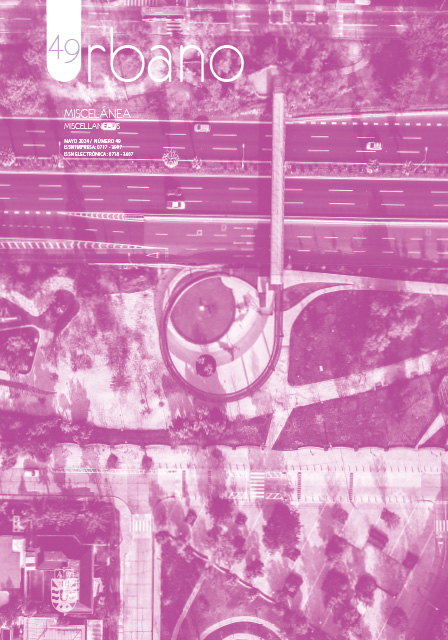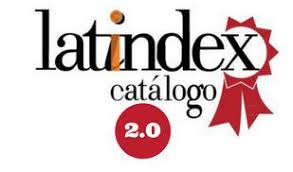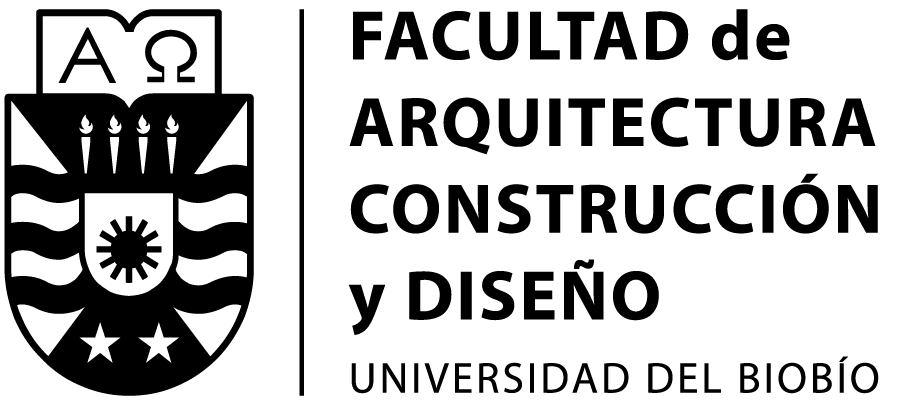Misma lucha, distintos objetivos: estrategias territoriales por el derecho a la ciudad en dos campamentos de Temuco, Chile
DOI:
https://doi.org/10.22320/07183607.2024.27.49.04Palabras clave:
marginalidad urbana, asentamientos informales, cartografía social, planificación territorial, políticas públicasResumen
Los campamentos habitacionales en Chile representan la marginación urbana en el país. Debido a las limitadas opciones que el Estado ofrece en términos de vivienda, estos asentamientos históricamente han desarrollado formas de organización y lucha en busca de su derecho a la ciudad. En esencia, estas acciones se centran en la autogestión para obtener un lugar donde vivir. Sin embargo, a pesar de compartir necesidades similares, estos grupos muestran diversas formas de lucha. En el contexto actual, con una creciente demanda de viviendas en el país se pueden observar variadas estrategias adoptadas por estos grupos para integrarse en la ciudad. Este artículo se enfoca en analizar las estrategias de ocupación y gobernanza espacial implementadas en dos campamentos ubicados en la ciudad de Temuco (Chile), Los PInos y Los Ripieros. Se utiliza un enfoque cualitativo que se basa en la aplicación de una cartografía social a los líderes de ambos asentamientos y la exploración de las narrativas relacionadas con la gobernanza espacial pasada y futura. Se identificaron diferencias entre estos dos campamentos, a pesar que comparten una ubicación física contigua y surgieron al mismo tiempo. Los resultados revelan que, a pesar de similitudes iniciales en términos del desarrollo urbanístico, existen diferencias en cuanto a las motivaciones que guían sus acciones futuras. Mientras que Los Ripieros busca activamente influir en la obtención de una solución habitacional permanente en otros sectores de la ciudad, Los Pinos opta por involucrarse en el marco de las normativas urbanas vigentes para asegurar una solución habitacional en el mismo lugar. Estos hallazgos enriquecen la discusión sobre la marginalidad urbana, al mostrar que las luchas por el espacio de grupos excluidos se centran en el equilibrio entre el arraigo y la obtención de vivienda. Esto último debe ser considerado por el estado, al momento de diseñar políticas urbanas.
Descargas
Citas
ABUFHELE, V. (2019). La política de la pobreza y el gobierno de los asentamientos informales en Chile. Revista EURE - Revista de Estudios Urbano Regionales, 45(135), 49–69. http://www.eure.cl/index.php/eure/article/view/2898/1172
ACESKA, A., HEER, B. y KAISER-GROLIMND, A. (2019). Doing the City from the Margins: Critical Perspectives on Urban Marginality. Anthropological Forum, 29(1) 1-11. https://doi.org/10.1080/00664677.2019.1588100
ADDO, I. y DANSO, S. (2017). Sociocultural factors and perceptions associated with voluntary and permanent relocation of flood victims: A case study of Sekondi-Takoradi Metropolis in Ghana. Jàmbá: Journal of Disaster Risk Studies, 9(1), 1-10. https://dx.doi.org/10.4102/jamba.v9i1.303
BRAIN, I., PRIETO, J., y SABATINI, F. (2010). Vivir en Campamentos: ¿Camino hacia la vivienda formal o estrategia de localización para enfrentar la vulnerabilidad? Revista EURE - Revista de Estudios Urbano Regionales, 36(109), 111–141. http://dx.doi.org/10.4067/S0250-71612010000300005
CARRASCO, S. y DANGOL, N. (2019). Citizen-government negotiation: Cases of in riverside informal settlements at flood risk. International journal of disaster risk reduction, 38. https://doi.org/10.1016/j.ijdrr.2019.101195
CASTAÑEDA, Y. y HERNÁNDEZ, A. (2021). Ciudad informal, territorialidades de producción social del espacio urbano en asentamientos humanos. Ciudad y Territorio Estudios Territoriales, 53(207), 141–152. https://doi.org/10.37230/CyTET.2021.207.08
CASTILLO, M. (2014). Competencias de los pobladores: Potencial de innovación para la política habitacional chilena. Revista INVI –Instituto de la Vivienda, 29(81), 79-112. http://dx.doi.org/10.4067/S0718-83582014000200003
CORTÉS, A. (2014). El movimiento de pobladores chilenos y la población La Victoria: ejemplaridad, movimientos sociales y el derecho a la ciudad. Revista EURE - Revista de Estudios Urbano Regionales, 40(119), 239–260. https://doi.org/10.7764/366
DUCCI, M. (1997). Chile: el lado obscuro de una política de vivienda exitosa. Revista EURE - Revista de Estudios Urbano Regionales, 23(69). 99–115. https://doi.org/10.7764/1164
FERNÁNDEZ, J. (2023). Estigma y resistencia: acción institucional y autogestión comunitaria en Alto Hospicio, Chile. Convergencia, 30, 1-28. https://doi.org/10.29101/crcs.v30i0.20354
FUNDACIÓN TECHO. (2021). Catastro Nacional de campamentos 2020–2021. Centro de Estudios Socioterritoriales (CES). https://ceschile.org/catastro/
FUSTER-FARFAN, X., RUIZ, J.I., y HENRY, L. (2023). Las periferias de la periferia: producción de ciudad y política habitacional en Chile. Territorios, 49 (1), 1-27. https://doi.org/10.12804/revistas.urosario.edu.co/territorios/a.12404
GIL, N. y GÓMEZ, J. (2019). La cartografía participativa como herramienta para la acción política, dos estudios de caso en espacios rurales y urbanos en Colombia. Cardinalis, (12), 290–316. https://revistas.unc.edu.ar/index.php/cardi/article/view/24984
HIDALGO, R. (2010). El papel de las leyes de fomento de la edificación obrera y la caja de habitación en la política de vivienda social en Chile 1931-1952. Revista INVI, 15(39), 92-120. https://doi.org/10.5354/0718-8358.2000.62105
IMILÁN, W., OSTERLING, E., MANSILLA, P., y JIRÓN, P. (2020). El campamento en relación con la ciudad: informalidad y movilidades residenciales de habitantes de Alto Hospicio. Revista INVI – Instituto de la Vivienda, 35(99), 57–80. https://revistas.uchile.cl/index.php/INVI/article/view/63167
LEFEBVRE, H. (1969). El Derecho a la Ciudad. Editorial Península. López, E., Flores, P., y Orozco, H. (2018). Inmigrantes en campamentos en Chile: ¿mecanismo de integración o efecto de exclusión?. Revista INVI – Instituto de la Vivienda, 33(94), 161 187. https://dx.doi.org/10.4067/S0718-83582018000300161
MAGLIANO, M, y PERISSINOTTI, M. (2020). La periferia autoconstruida: migraciones, informalidad y segregación urbana en Argentina. Revista EURE - Revista de Estudios Urbano Regionales, 46(138), 5-23. https://dx.doi.org/10.4067/S0250-71612020000200005
MATUS, C., RAMONEDA, A. y VALENZUELA, F. (2019). La integración social como desafío: análisis del programa de campamentos en Chile (2011-2018). Revista INVI, 34(97), 49-78. https://dx.doi.org/10.4067/S0718-83582019000300049
MINISTERIO DE VIVIENDA Y URBANISMO. (2022). Catastro Nacional de Campamentos 2022. Recuperado el 05 de enero de 2023 de https://www.minvu.gob.cl/noticia/noticias/minvu-presenta-el-catastro-nacional-decampamentos-2022/
MIRAFTAB, F. (2018). Insurgencia, planificación y la perspectiva de un urbanismo humano. Territorios. (38). 215–233. https://doi.org/10.12804/revistas.urosario.edu.co/territorios/a.6507
MORENO, J. (2021). ¿Al lado del camino? Inventariando estrategias de autogestión del hábitat en Chile. Revista INVI, 36(102), 279 – 301. https://revistainvi.uchile.cl/index.php/INVI/article/view/63360
PÁJARO, D. y TELLO, E. (2014). Fundamentos epistemológicos para la cartografía participativa. Etnoecológica, 10(1), 1 – 20. https://www.researchgate.net/publication/296665874_Fundamentos_epistemologicos_para_la_cartografia_participativa
PÉREZ, M. (2019). Uno tiene que tener casa donde nació. Ciudadanía y derecho a la ciudad en Santiago. EURE, 45(135), 71-90. http://dx.doi.org/10.4067/S0250-71612019000200071
PERLMAN, J. y DELGADILLO, V. (2019). Ciudades sin tugurios, ciudades sin alma. Repensando los conceptos y las consecuencias de la marginalidad en las favelas de Río de Janeiro. Andamios, 16(39), 207 - 233. https://doi.org/10.29092/uacm.v16i39.680
PINO, A. y OJEDA, L. (2013). Ciudad y hábitat informal: las tomas de terreno y la autoconstrucción en las quebradas de Valparaíso. Revista INVI – Instituto de la Vivienda, 28(78), 109 – 140. http://dx.doi.org/10.4067/S0718-83582013000200004
REGITZ, M. (2019). De la planificación insurgente a la praxis del circuito inferior: ¿una articulación posible?. Estudios Socioterritoriales. Revista De Geografía, (26), e038. https://doi.org/10.37838/unicen/est.26-038
ROJO-MENDOZA, F. e HIDALGO DATTWYLER, R. (2021). Las clases sociales y el modelamiento socioespacial de Temuco, Chile, a finales del siglo XX. Estudios Demográficos y Urbanos, 36(3), 825–863. https://doi.org/10.24201/edu.v36i3.1919
ROJO-MENDOZA, F., MERCADO-CERRONI, C. y ALVARADO-PETERSON, V. (2023). Residential Expectations in a Neoliberal Perspective: A Sociological View of Social Classes and the Right to Housing. In: Navarro-Jurado, E., Larrubia Vargas, R., Almeida-García, F., Natera Rivas, J.J. (eds) Urban Dynamics in the Post-pandemic Period. The Urban Book Series. Springer, Cham. https://link.springer.com/content/pdf/10.1007/978-3-031-36017-6_18.pdf?pdf=inline+link
RUIZ-TAGLE, J., ALVAREZ, M. y LABBÉ, G. (2023). Urban marginality and institutional effects: Disinvestment, inefficacy, and stigmatization in Santiago de Chile. Journal of Urban Affairs. https://doi.org/10.1080/07352166.2022.2150198
SABATINI, F. (2000). Reforma de los mercados de suelo en Santiago, Chile: efectos sobre los precios de la tierra y la segregación residencial. Revista EURE – Revista de Estudios Urbano Regionales, 26(77), 49 - 80. https://dx.doi.org/10.4067/S0250-71612000007700003
SEPÚLVEDA, K. (2019). Experiencias de urbanización: El caso del campamento Manuel Bustos (Viña del Mar, Chile). Revista Faro, 2(30), 6 – 19. https://www.revistafaro.cl/index.php/Faro/article/view/604
STRAUSS, A. y CORBIN, C. (2002). Bases de la investigación cualitativa: técnicas y procedimientos para desarrollar la Teoría Fundamentada. Universidad de Antioquia. https://www.academia.edu/29601295/Bases_de_la_investigaci%C3%B3n_cualitativa_T%C3%A9cnicas_y_procedimientos_para_desarrollar_la_teor%C3%ADa_fundamentada
TANT, E. (2017). El desplazamiento y la expulsión urbana en Chile: Dos estudios de casos. ÉnfaCIS, Centro de Investigación Social, TECHO, (11), 1 – 15. https://ceschile.org/wp-content/uploads/2020/11/5_enfacis11.pdf
WACQUANT, L. (2015). Las cárceles de la miseria. Ed. Manantial.
WIGLE, J. (2014). The ‘Graying’ of ‘Green’ Zones: Spatial Governance and Irregular Settlement in Xochimilco, Mexico City. International Journal of Urban and Regional Research, 38 (2): 573–89. https://doi.org/10.1111/1468-2427.12019
ZENTENO, E., SEPÚLVEDA, K., AHUMADA, J. y DÍAZ, J. (2020). De ciudadanías insurgentes a planificadores, urbanos. Organización social en la urbanización del campamento Manuel Bustos de Viña del Mar. Revista de geografía Norte Grande, (77), 157 - 172. https://dx.doi.org/10.4067/S0718-34022020000300157
Descargas
Publicado
Cómo citar
Número
Sección
Licencia
Derechos de autor 2024 Ignacio Andrés Bondis-Luna, Félix Rojo-Mendoza, Miguel Escalona-Ulloa

Esta obra está bajo una licencia internacional Creative Commons Atribución-CompartirIgual 4.0.
El contenido de los artículos y reseñas que se publican en cada número de Urbano, es responsabilidad exclusiva de los autores y no representan necesariamente el pensamiento ni comprometen la opinión de la Universidad del Bío-Bío.
Las/os autoras/es conservarán sus derechos de autor, sin embargo, garantizarán a la revista el derecho de primera publicación y difusión de su obra. La publicación del artículo en Urbano estará sujeta a la Licencia de Reconocimiento de Creative Commons CC BY-SA que permite a otros compartir-copiar, transformar o crear nuevo material a partir de esta obra para cualquier propósito, incluso comercialmente, siempre y cuando se reconozcan la autoría y la primera publicación en esta revista, y sus nuevas creaciones estén bajo una licencia con los mismos términos.![]()























